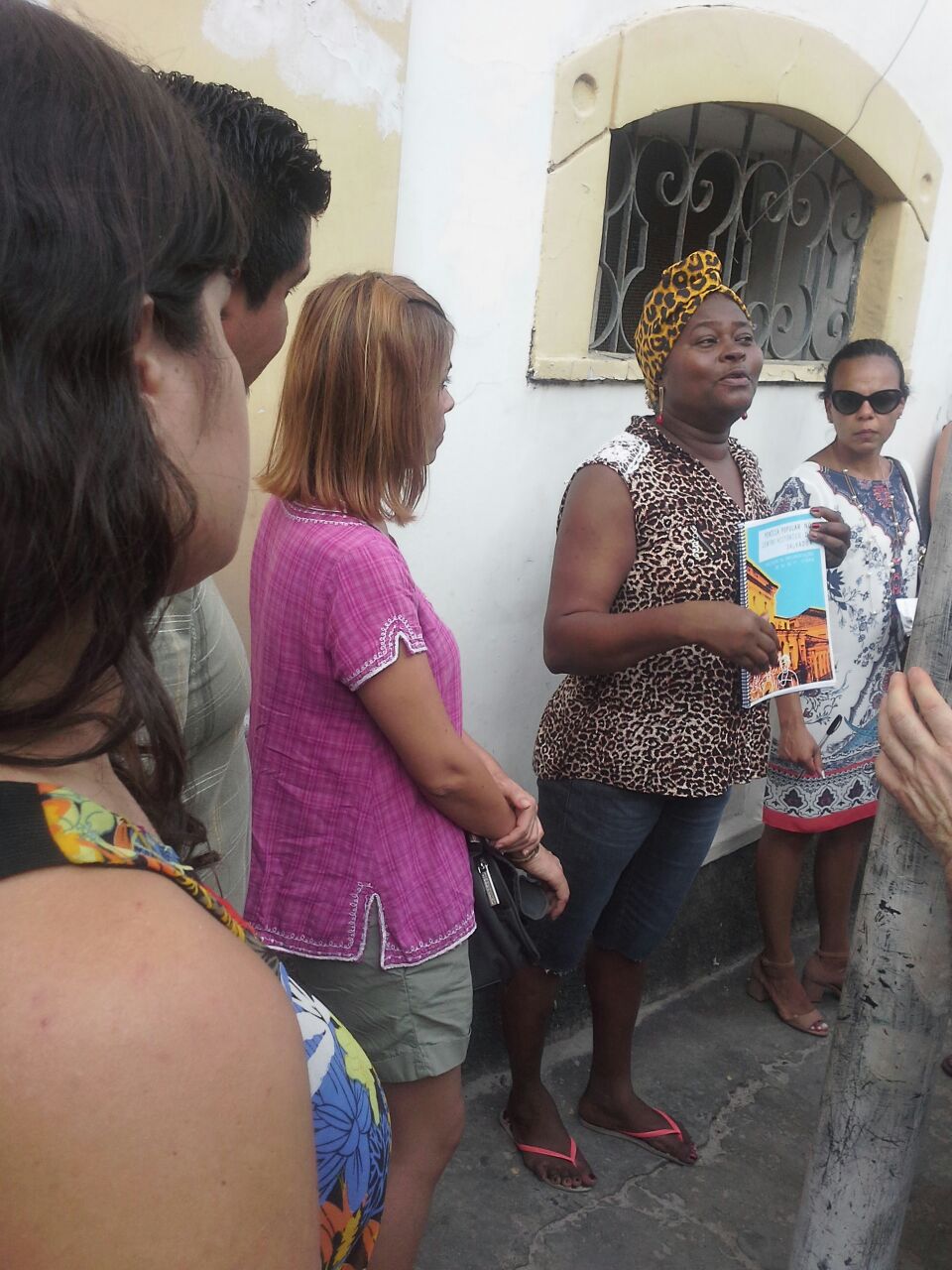This article presents a personal account of some activities linked to the right to the city at the World Social Forum 2018. It explores the process of urban extractivism under neoliberal urbanism and some strategies of resistance by deploying tools for collective actions and expanding the commons. Alliances between universities and movements can play a fundamental role in these struggles.
The stream of activities under the theme of the right to the city were a major component of the World Social Forum 2018 in Salvador. The location was also very significant because most activities were located within the Faculty of Architecture and Urbanism in the campus of the Federal University of Bahia which was a perfect hub for meeting amongst activists. Urban movements, particularly those for housing rights, were also a very visible presence in the opening March.
One of the first events of the forum on this theme was a thematic roundtable on “struggles and collective practices for the right to the city: urban neoliberalism or life in the commons?” which brought together urban movements and academics. This was organised by Lugar Comum, which is an active research group based at the Faculty of Architecture and Urbanism. The group brings together urban movements and researchers working on the right to the city through various activities, including the creation of a practice module on politics, democracy and the right to the city. The table reflected on how the concept of the commons is a way to go beyond the dichotomy public/private, where the public is often exclusively associated with the state, and instead add the third dimension of the commons as essential to the living well (bien vivir). Urban movements and academics expressed the necessity to build the urbanism of the commons in order to challenge neoliberal urbanism, given the state failure to provide democratic answers to the exponential concentration of wealth. However, urbanism is often framed as a technical process better dealt with by professionals, and this is where the right to the city can challenge this way of producing cities, claiming the central role of citizen in making the city.
Another event organised by the Centro de Estudios y Accion por la Igualdad and the Colectivo por la Igualdad focused on urban extractivism. This concept explains well a number of different processes taking place in different neoliberal cities of the world. It refers to an urbanism where private capital extracts profit from value that is collectively produced by society or by government interventions. This process of extraction is not just allowed but often incentivised by city managers, sometimes with clear collusion between city managers and real estate developers. This is a process that transcends the political party in power, with some consultancies working for both left- and right-wing governments to replicate planning interventions aiming at extracting value for global capital.
An outcome of this form of urbanism is the number of empty houses in Latin America cities, speakers mentioned 300,000 in Buenos Aires, 100,000 in Salvador and 400,000 in Sao Paulo. Of course, this is a global issue and cities like London equally have people without homes and a large number of vacant properties. Another intense process is the continuous expropriation of the commons, the privatisation of space with the selling of public land to real estate developers, with more than 220 hectares sold in Buenos Aires.
Sharing examples from Latin America, Africa and Europe, participants converged around the fact that urban extractivism is a global phenomenon and that the state has been captured by the interests of global capital pushing for the privatisation of cities. Therefore, to advance the right to the city it was discussed the need to propose a feminist urbanism – where the city reproduces life rather than capital – and refute the competitive city model often based on ‘anti-cities’ such as Dubai. Given this analysis of current processes, the response of the movements focused on resistance and the sharing of tools for collective action they identified as effective.
It was acknowledged the need for urban movements to build new alliances with universities in order to build continuous education for popular transformation in order to grasp the complexity of the processes at play and devise adequate responses. An important exchange between global movements took place around the creation of an online platform of learning materials under the umbrella of the popular urban university.
The forum also hosted a session of the International Tribunal on Evictions. This was convened by a large network of civil society organisations and selected cases of violation of the right to housing and land that take place in the various regions of Brazil were presented to a jury of national and international experts. The Jury gave its verdict and made recommendations to the respective economic and institutional actors, who are responsible for the evictions. It also provided support to the popular and civil organisations, helping them to ensure that the authorities fulfil their demands. The tribunal was only able to hear five cases out of 34 submitted to the tribunal, highlighting the need for a permanent national tribunal on evictions. On its first day, activists form across the world and Brazil visited different sites of resistance to evictions in the city centre of Salvador which helped grounding the activities of the forum in the local struggles.
Towards the end of the forum a convergence session on the right to the city tried to synthesise some of these conversations and plan future action through the global platform. All discussions were highly influenced by the difficult political situation in Brazil, where violence against activists is escalating, for instance the killing during the forum of Marielle Franco, and presidential elections are approaching but with the likely judicial exclusion of former president Lula.





